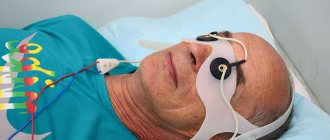Which group can be assigned
Patients with dementia are assigned disability group I for life, since the disease is steadily progressing and there is no cure. For similar mental disorders, experts assess the degree of impairment of the following functions:
- memory;
- consciousness;
- emotions;
- thinking;
- attention;
- intelligence;
- behavior;
- volitional sphere.
Depending on the severity of the deviations, ITU may assign group I, II or III. In the first case, they confirm a person’s complete loss of ability for self-care, work, and interaction with other people, and assess the need for constant outside care. In schizophrenia, it is awarded to patients with irreversible personality changes.
Group II is established for severe mental disorders with frequent exacerbations, pronounced changes in thinking, and a decrease in the quality of remission. The patient can perform some actions, but only for a short time with the help of other people or in specially created conditions. Group III disability is prescribed for a low-grade mental disorder. Elderly people retain the ability to communicate and work in gentle conditions.
The refusal of the ITU may be justified by the absence of a number of documents in the package, data on the examination of a psychiatrist with confirmation of the diagnosis. A person is required to register with a psychoneurological dispensary, which monitors the dynamics of pathology.
In what cases does dementia qualify for disability?
To receive a pension, dementia must be persistent with impairment of body functions and impairment of health. Typically, patients with neurological pathologies, post-traumatic diseases and defects are subject to examination. Dementia can be a manifestation of a disease itself, such as Alzheimer's disease, Huntington's disease, or due to vascular disorders. Vascular dementia develops due to impaired blood flow in the blood vessels of the brain. The progression of the disease contributes to persistent cognitive impairment. A person is not able to adequately perceive the world around him, people, and navigate his personality. You can apply for disability due to dementia by combining several symptoms:
- difficulties in self-care, inability to perform simple actions;
- the patient is not oriented in space and time;
- travel only when accompanied;
- uncontrollable behavioral reactions (hysteria, laughter, irritation, aggression);
- mental status disturbance (hallucinations, delusions);
- there is a potential danger to yourself and others;
- the need for regular rehabilitation.
Timely initiation of pathogenetic therapy stops the progression of the disease, and in 7-9% of cases with hemovascular pathology leads to cure.
The patient's life expectancy is determined by living conditions, characteristics of care and the adequacy of treatment. In most cases, life expectancy is no more than 14-15 years. Average prognostic data
| Nosology | Lifespan |
| Alzheimer's disease | Life expectancy after an accurate diagnosis is on average 7-8 years. The time period may vary depending on the form of Alzheimer's (early, late). |
| Parkinson's disease | Vascular changes occur at a late stage, which makes the course malignant. Lethal outcome after 3-6 years. |
| Huntington's disease | Genetically determined moderate to severe damage to the nervous system is accompanied by dementia of the vascular type. It takes 10-15 years. |
| Dementia with Lewy bodies | Cognitive changes and personality destruction last for about 6-7 years. |
| Frontal form of dementia | Hormonal imbalance is associated with dementia. Patients live more than 10-13 years. |
Important! Sometimes, even in the absence of obvious signs of complications, a person lives for 2-3 years. In other cases, it happens that a patient with established severe dementia lives about 10-16 years.
A disability group is mandatory for dementia, since the disease is steadily progressing and there is no cure. A refusal by the medical commission may occur if a complete package of documents has not been collected, an examination by a psychiatrist has not been examined, and an accurate diagnosis has not been confirmed. The patient is required to register with a neuropsychiatric dispensary in order to monitor the dynamics of the disease.
Procedure for referral to ITU
Pensioners with dementia or similar mental disorders undergo a standard assessment procedure, which includes the following steps:
- submitting an application to the attending physician for a disability group;
- if necessary, undergo a course of treatment in a hospital;
- collection of necessary documents for ITU, including preparation of a delivery slip;
- taking tests and examination by specialists;
- transfer by the medical institution of a package of documents with a referral to the ITU to the bureau.
Notification of the date of the examination is given to the patient. Usually it is prescribed no later than 1 month from the date of registration of the application. The examination procedure takes place in the ITU department, with the exception of severe cases when the patient cannot be present in person.
How to register the incapacity of an elderly person and what documents are needed?
With Alzheimer's disease and progressive dementia, the patient is unable to control his actions. After registering the patient with a psychoneurological dispensary, the person’s incapacity can be formalized.
The court can recognize the patient's incompetence. The basis for initiating a case is an application that can be submitted by family members and close relatives of the patient. The court orders a forensic medical examination. On its basis, a decision is made on incapacity and the possibility of obtaining guardianship.
Important! How to create a power of attorney for dementia? This is possible only with a mild degree of illness, when the patient can tell the notary independently about his expression of will. Otherwise, incapacity must be filed.
Rules for registering disability
To assess the degree of mental disorder, the doctor directs the patient to undergo a 4-month course of treatment in a hospital. If an unfavorable prognosis is recorded, the duration of therapy can be reduced.
When issuing a delivery slip, the patient must undergo the following types of examinations:
- consultation with a neurologist after encephalography;
- examination by a psychiatrist;
- laboratory and clinical tests of blood and urine;
- CT or MRI of cerebral vessels.
To draw up an appropriate conclusion about the pensioner’s state of health, consultations with other specialized specialists are recommended.
Not only the patient with dementia, but also a person authorized by him or her can apply for disability. Often, the disease quickly leads to deep mental disorders, so a person is not able to independently resolve the issues of forming a group. The guardian, who is a close relative or a social worker, collects the necessary documentation to obtain a referral to MSA.
If the patient is immobilized or there are problems in transporting him for examination to specialists, then all examinations and examinations by members of the commission are carried out at home. Elderly people diagnosed with dementia are assigned disability for life. The person or his guardian is given a certificate of disability and an individual rehabilitation program.
For similar mental disorders, re-examination of groups II and III is carried out every year, group I – once every two years. The duration of permanent disability is determined on an individual basis. If a patient with dementia is denied MSE or group confirmation, then he or his guardian can appeal the decision in court with the participation of the board of trustees.
Degree of impairment and disability group
Once a person is diagnosed with Alzheimer's disease, they should be referred to VTEC. The commission assigns one or another disability group depending on the degree of functional impairment of the body that occurs with a given disease.
If it is determined that the patient has III degree of functional impairment, he is assigned disability group II. What do grade III functional impairments mean in Alzheimer's disease? They are characterized by the following features:
- behavioral disorders;
- disorientation in space and time;
- memory impairment, both long- and short-term;
- maintaining self-care skills: hygiene, dressing, eating;
- maintaining communication skills.
This clinical picture corresponds to Alzheimer's disease in the stages of pre-dementia and early dementia. They are characterized by progression of the disease:
- rapid memory deterioration;
- disorders of the speech apparatus;
- weakening of mental activity, verbal expression of thoughts;
- selective memory: the patient perfectly remembers events of the distant past and quickly forgets episodes from the present.
At this stage, atrophy of the cerebral cortex begins, which can be seen on a computed tomography scan. Atrophy is moderate, but intensifies over time.
I disability group
This is the heaviest group. It is given for grade IV functional disorders. Violations of this degree are characterized by:
- extremely inappropriate behavior;
- disorientation in space and time;
- complete amnesia;
- apraxia, that is, the inability to perform purposeful actions;
- aphasia, that is, various speech disorders;
- agraphia, that is, loss of writing skills;
- complete loss of self-care skills;
- loss of communication skills.
This condition corresponds to moderate to severe dementia.
Moderate dementia is accompanied by the following symptoms:
- decreased ability to act independently;
- disorders of the speech apparatus: decreased vocabulary, inadequate replacement of words;
- loss of reading and writing skills;
- progressive amnesia: a person ceases to recognize even close people;
- manifestations of a psychiatric nature: a person may begin to wander, symptoms worsen in the evenings;
- emotional lability: manifestations of unmotivated aggression and irritability, sudden crying, resistance;
- false identification syndrome, delusion;
- enuresis.
Over time, severe dementia sets in. This is the last stage of the disease. A person absolutely cannot do without outside care. The following signs are characteristic of this stage:
- complete loss of speech skills;
- rare attacks of aggression;
- severe exhaustion;
- loss of muscle mass;
- partial and then complete loss of motor skills;
- apathy;
- loss of the ability to eat independently, impaired swallowing reflex.
Computed tomography shows signs of atrophy of the cerebral cortex, which are very pronounced. The frontal and temporal lobes of the brain are more affected.
Individual rehabilitation program
In the document that a person receives upon awarding a group, the commission's experts describe in detail recommendations on working conditions, the amount of social and medical assistance. They also indicate the need for guardianship, legal advice, and referral to a specialized medical institution.
For patients with dementia or similar mental disorders, the IPR must note the frequency of planned hospitalizations and examinations by a psychiatrist or neurologist. One of the points of the program for patients with impaired mobility, urinary and fecal incontinence is the free provision of hygiene products. If the conclusions of specialists indicate the need to use technical means of rehabilitation, then the pensioner is put on a waiting list to receive them. Assistance is provided to the beneficiary at the place of registration.
Forming a group greatly simplifies the life of a pensioner with dementia and his family. Disability allows you to receive free of charge the necessary medications, technical and hygienic means of rehabilitation, and financial assistance in the form of a pension supplement.
What is disability for Alzheimer's disease, and what group is assigned?
What is the disability group for Alzheimer's disease? How can she help the patient and his loved ones? A patient with a disability receives expanded social support from the state:
- Preferential prices for some medicines;
- Disability pension (details are set out in the document “Federal Law “On Labor Pensions in the Russian Federation”);
- The opportunity to receive technical means of rehabilitation free of charge or on preferential terms;
- Discount on utility bills of at least 50%;
- The right to social payments and benefits;
- The right to priority housing.
What disability group can be given for Alzheimer's disease in the initial phase? In the stage of pre-dementia or with mild mental disorders, disability group 2 is assigned. In this case, Alzheimer's disease only worsens the somatic pathology. At the moderate and severe stages of dementia, the ITU assigns the patient group 1 indefinitely. The patient is incapacitated and requires daily personal care.
Alzheimer's disability group 2
The second disability group is assigned to patients with an initial form of dementia. In this case, there is a significant loss of body functions, but the patient can control his behavior and care for himself. A patient with an initial form of dementia can continue to work if it does not require him to make important and responsible decisions. For example, in early forms of dementia, light physical labor is not contraindicated.
Social assistance for disabled people of group 2: provision of preferential medications, monthly payments (Federal Law 181-FZ “On social protection of disabled people in the Russian Federation”), social pension.
Alzheimer's disability group 1
The first disability group is established for the moderate and severe stages of the disease. The patient loses his ability to work and gradually loses the ability to care for himself. In this case, care is provided by the relatives of the sick patient or social services (in the absence of relatives).
The disability group makes it possible to receive preferential medications, monthly payments, a disability pension, and free means of technical rehabilitation. In addition, the patient with dementia should have a separate room. Therefore, relatives have the right to priority for housing.









